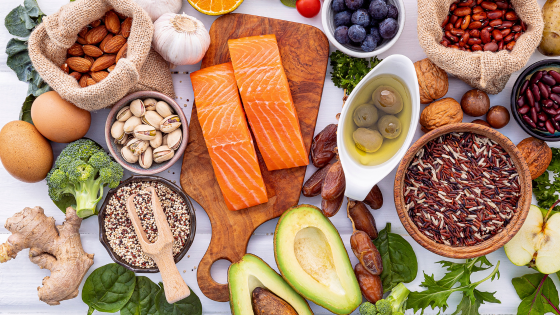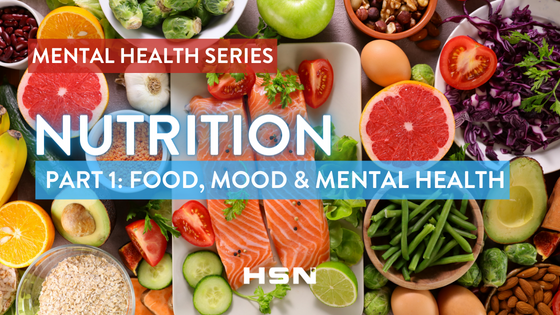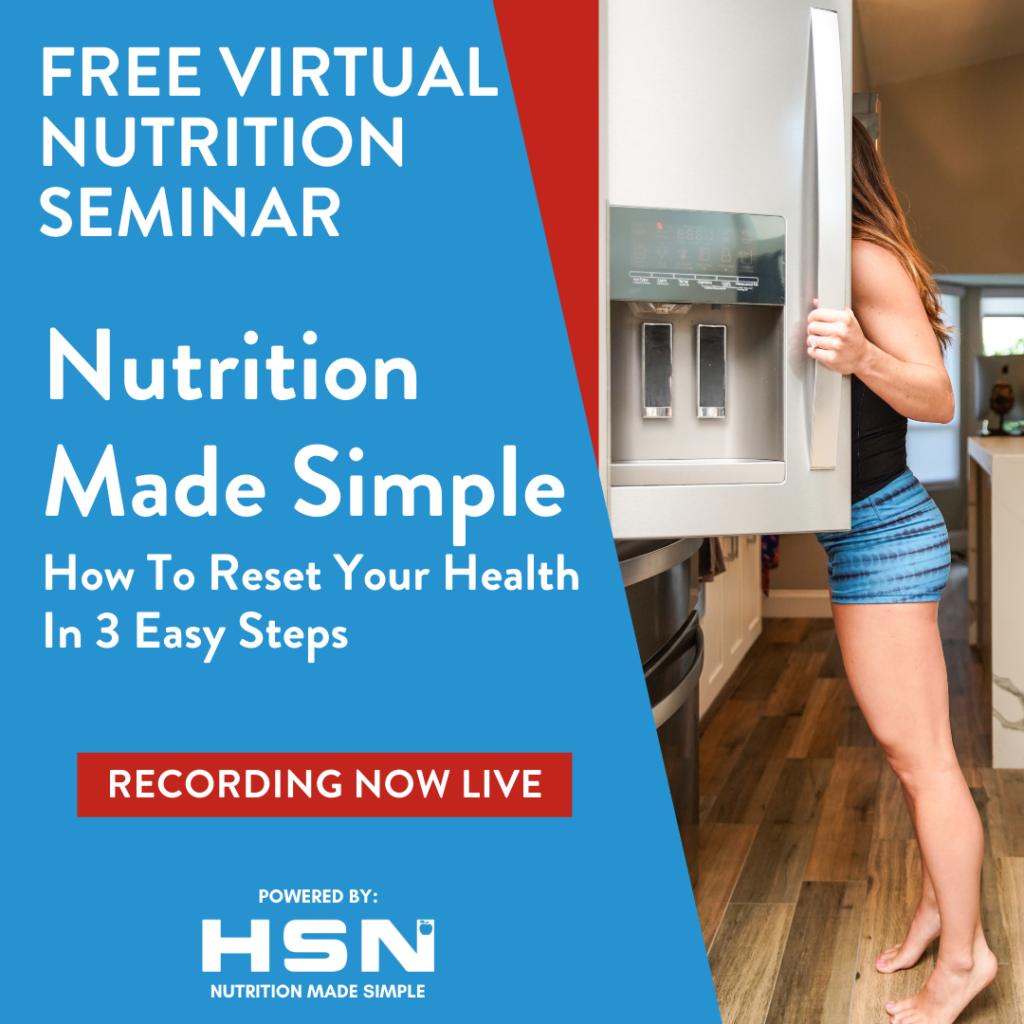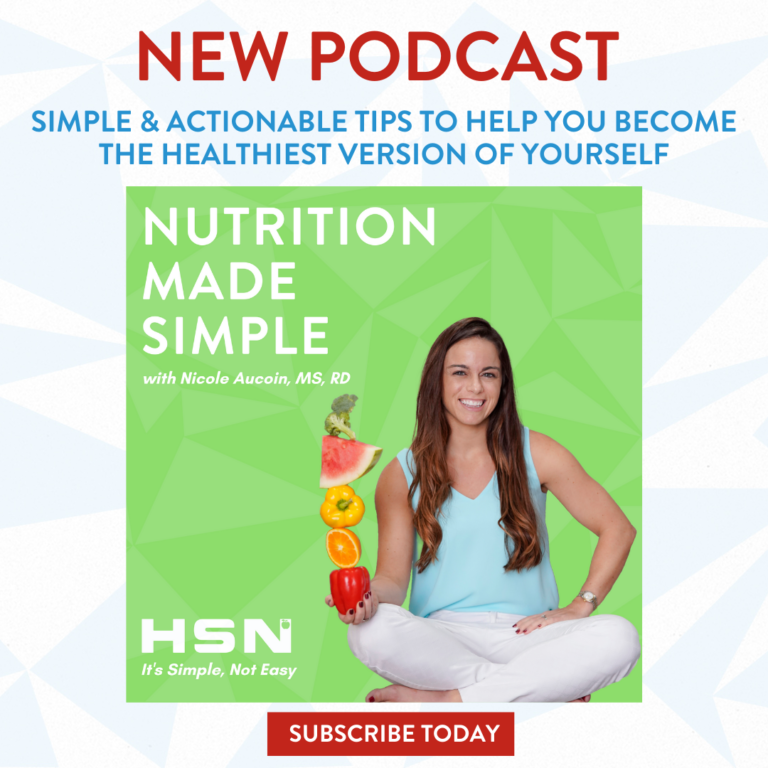The connection between what we eat and our mental health is undeniable.
What we eat influences our feelings, energy levels, brain chemistry, and cognitive function.
Part 1 of our Mental Health series discusses the foods we eat, our mental health, and mental illness.
Whole Foods-Based Diet
By consuming a variety of whole foods, you will consume vitamins, minerals, and macronutrients that are optimal for brain function.
The first core principle at Healthy Steps Nutrition is to whole foods first (eat meats and veggies, nuts and seeds, some fruit, little starch, and minimal added sugar).
Studies show some nutrients are associated with improved mental health like:
- Omega 3’s
- B Vitamins
- Vitamin D
- Magnesium
- Zinc
Ultra-processed foods have been shown to increase the risk of anxiety and depression. One recent study showed people who consumed 60% and 80%+ of calories from processed foods led to an 31% and 81% likelihood they would experience depression. People who consumed > 60% of calories from ultra-processed foods were more likely to be mentally unhealthy and experience anxiety throughout the month.
What are ultra-processed foods?
“Ultra-processed foods (UPF) are defined as industrial formulations of processed food substances (oils, fats, sugars, starch, protein isolates) that contain little or no whole food and typically include flavorings, colorings, emulsifiers, and other additives.” They are typically low-cost and convenient. Examples include chips, lunch meats, sugar-sweetened beverages, cakes, cookies, breakfast cereals, packaged snacks, and more.

Gut-Brain Connection
The gut is referred to as the “second brain.” Maybe you had a “gut feeling” before or have experienced knots in your stomach.
The gut-brain access is a network of communications that link our cognitive and intestinal functions, the vagus nerve plays a vital role in this process controlling immune function, mood and digestion. Stress can influence the vagus nerve and alter digestive functions.
The central nervous system produces neurotransmitters, like dopamine and serotonin, that regulate mood and feelings. Serotonin deficiency can lead to anxiety and depression. Over 90% of serotonin receptors and production is in the gut. The production of serotonin relies on a healthy balance of beneficial gut bacteria, which our diet can influence.
Probiotic-rich foods like yogurt, kefir, sauerkraut, and kimchi can support gut health and potentially enhance mood.
If you are not eating probiotic-rich foods regularly, consider a supplement.

Blood-Sugar Balance
Did you know that over 50% of the United States population has diabetes or pre-diabetes? Over 80% of the people with pre-diabetes are undiagnosed. Uncontrolled blood sugar is one of the leading causes of chronic disease today.
Blood sugar balance is vital for optimal health, disease prevention, energy levels, mood, and ultimately feeling our best.
Tips To Help Manage Your Blood Sugar:
- Focus on balance; pair protein, veggies, carbohydrates and healthy fat together for meals and snacks. Try to follow the plate method.
- Go for a 15-minute walk after meals.
- Limit sugar-sweetened beverages.
- Eat carbohydrates in moderation.

Eating healthy isn’t just about reaching a number on the sale or fitting into a pair of jeans. Prioritizing your nutrition, focusing on whole foods, balance and limiting the amount of ultra-processed foods will improve your mental health, energy levels, ability to prevent and reverse chronic disease and ultimately become your best self.
Are you overwhelmed by all of the different diets out there?
Are you looking for an expert coach to create a plan that’s specifically for you and, more importantly, provide you support and accountability every step of the way?
We would love to help you.
It’s important to note that while food can play a role in supporting mental health, it is not a substitute for professional help. If you’re experiencing mental health issues, it’s crucial to consult a healthcare provider for an accurate diagnosis and appropriate treatment.






